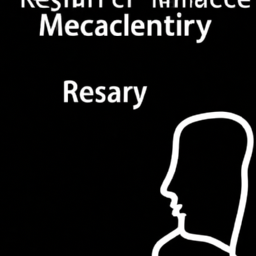The introduction of Senate Bill 07623 in the New York legislature has generated a lot of buzz within the Human Resources (HR) community. This bill would significantly limit employers’ ability to use electronic monitoring and automated decision-making tools in the state. This article will discuss the implications of this bill, and how it could affect HR departments in New York.
What Is Electronic Monitoring?
Electronic monitoring is the practice of using technology to monitor employee activity, such as e-mail, web browsing, and phone calls. It is commonly used to detect misconduct, prevent fraud, and ensure compliance with regulations.
Employers use electronic monitoring to ensure that employees are not engaging in activities that could be detrimental to the company. For example, an employer could monitor emails to ensure that confidential information is not being shared inappropriately. However, electronic monitoring can also lead to a violation of employee privacy and can be used to create a hostile work environment.
What Is Automated Decision-Making Technology?
Automated decision-making technology refers to the use of computer algorithms to make decisions about a person’s employment status. This technology is often used to automate the hiring process or to make decisions about promotions, pay raises, and other personnel matters.
The use of automated decision-making technology has the potential to reduce bias in the decision-making process, as the algorithms are based on objective criteria. However, there is also the potential for the technology to be misused, as the criteria used to make decisions could be based on factors such as race, gender, or age that are not job-related.
Implications of the New York Bill
If Senate Bill 07623 is passed, employers in New York would be prohibited from using both electronic monitoring and automated decision-making technology without the express consent of each employee or applicant. This includes the use of facial recognition technology, GPS tracking, and audio and video monitoring.
The bill also requires employers to provide employees with a copy of their data collected through electronic monitoring and automated decision-making technology. Employers would also be required to obtain consent from employees before using any of this data for decisions about hiring, promotion, or termination.
The bill also requires employers to provide employees with an opportunity to opt-out of electronic monitoring and automated decision-making technology. This means that employers would need to provide employees with an opportunity to decline to participate in these activities.
Conclusion
The introduction of Senate Bill 07623 in New York has the potential to significantly limit employers’ ability to use electronic monitoring and automated decision-making technology. This could have far-reaching implications for HR departments in the state, as employers would need to obtain employee consent before using any of this technology. It could also create a more level playing field when it comes to employment decisions, as the use of automated decision-making technology could be reduced. Ultimately, this bill could have a positive impact on employee privacy and could create a more equitable workplace.



